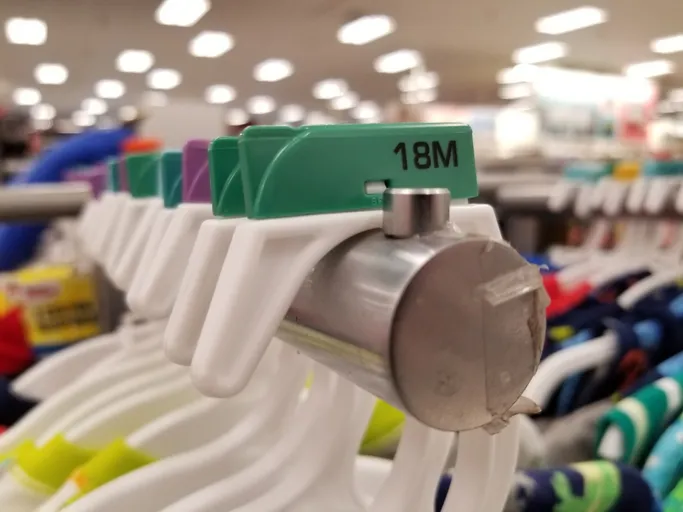Blog
Generative AI in Retail and CPG: Revolutionizing Operations and Customer Experience

Generative Artificial Intelligence (GAI) can transform multiple facets of retail and consumer packaged goods (CPG) industries, from product development and digital commerce to sales and marketing, supply chain, and in-store operations. Explore GAI’s exciting future in this blog. Contact us
to speak to an analyst on this topic.
Following the growing trend in other industries, retail and CPG enterprises are now investing in GAI to harness its potential to enhance operations and customer experience.
While not a completely new technology, the current enthusiasm for GAI stems from the introduction of user-friendly interfaces (ChatGPT) that enable users to effortlessly generate high-quality text, graphics, and videos in seconds, marking a significant advancement in content creation.
But the question remains: Will GAI leave a lasting impact on the retail and consumer goods value chain, or will it follow the trajectory of numerous other technologies and fade into obscurity? Let’s explore this further.
To comprehensively grasp the impact of generative AI in retail and the CPG industry, we have identified and highlighted specific use cases across the value chain. By examining its potential and ease of adoption, we can better understand how GAI can revolutionize and drive transformative change in this sector.
The matrix below explores the more promising application areas and roadblocks to adoption across five areas of the retail and CPG industry value chain: product development, digital commerce, sales and marketing, supply chain, and in-store operations.

From our analysis, the following key takeaways emerge:
- Product Development: GAI’s integration with data, analytics, and customer preferences empowers product development in retail and CPG, propelling innovative and efficient design processes. GAI enables businesses to create products that resonate with customers by enhancing decision-making capabilities and driving success in the competitive retail and CPG market.
Use Case: Anheuser-Busch’s AB InBev developed the world’s first AI-created beer called Beck’s Autonomous by leveraging GAI to analyze customer preferences. GAI tools such as ChatGPT and Midjourney were used to create the recipe and logo, name the beer, and design the packaging
- Digital Commerce: By leveraging GAI, businesses can create personalized and interactive customer experiences to optimize engagement and satisfaction. From dynamically generating product recommendations to creating virtual fitting and styling experiences, GAI opens new avenues for transforming the way customers interact and engage with retail and CPG brands.
Use Case: Levi’s has introduced a tool that allows customers to virtually try on apparel by capturing their body shapes with a smartphone. Integrated with GAI technology, this feature then generates images of them wearing different attire options
- Sales and marketing: GAI holds the transformative potential to revolutionize sales and marketing strategies in the retail and CPG sector, particularly by customizing messaging. Businesses can use GAI to create highly tailored and personalized marketing campaigns that resonate with individual customers, increasing engagement and conversions. Additionally, GAI enables precise targeting of localized market segments, allowing brands to deliver relevant and targeted messages that effectively capture the attention of specific regions or demographics.
Use Case: Utilizing GAI, IKEA collects consumer preference data from various regions and cultures, allowing the retailer to create localized marketing campaigns that successfully resonate with local audiences. This approach includes tailored campaigns for furniture products targeting young urban professionals to suburban families
- Supply chain: GAI can be a game-changer in optimizing supply chain operations for the retail and CPG industry, unlocking its vast potential to drive efficiency and productivity. By combining GAI with advanced analytics, businesses can gain valuable insights into demand forecasting, inventory management, and logistics optimization, resulting in streamlined operations and reduced costs. Moreover, automating documentation processes through GAI simplifies paperwork, saves time, and improves accuracy, contributing to smoother and more efficient supply chain workflows.
Use case: Walmart is harnessing GAI to develop efficient and sustainable supply chains. The retail giant employs algorithms for accurate demand forecasting, waste reduction, improved inventory management, and optimized transportation networks, resulting in lower costs and emissions
- In-store operations: GAI has immense promise to revolutionize in-store retail operations, offering a powerful tool to optimize various customer experience aspects. Applying GAI’s capabilities, retailers can analyze vast amounts of data and extract actionable insights to enhance sales performance. Additionally, GAI can automate and optimize tasks like managing inventory, creating visual merchandising, and personalizing product recommendations, ultimately improving operational efficiency and increasing customer satisfaction.
Use case: Amazon Go is enhancing its contactless checkout process by leveraging GAI to track customer movement, identify selected products, and automatically charge customers’ Amazon accounts when they exit the store
Outlook for Generative AI in retail and CPG
The future potential of generative AI in retail and CPG demonstrates encouraging prospects for enhancing customer engagement and operations. However, conducting thorough research before implementing this technology is crucial.
As the retail and CPG industry is still experimenting with GAI, it is advisable for businesses to first identify specific problems and understand how GAI can effectively solve them, rather than investing in flashy use cases.
Enterprises interested in experimenting with GAI technology should begin with customer-centric use cases as pilot projects before expanding to more complex applications. By taking this approach, retailers and consumer goods companies can ensure a smoother transition and realize the many benefits this technology offers.
Everest Group will continue to follow the evolution in this space. To discuss generative AI in retail and the CPG industry, please reach out to [email protected], [email protected], and [email protected].
Learn about the vast potential of GAI in customer experience in our LinkedIn Live, Generative AI in Customer Experience: Use Cases and Responsible Adoption.